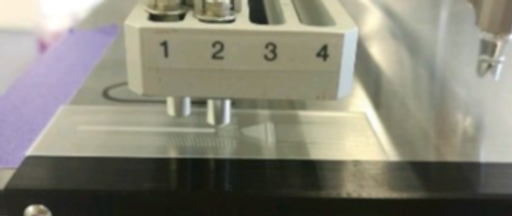
Microfluidic Surface Functionalization
Overview
Microfluidic surface functionalization is a critical process for enhancing the performance of microfluidic devices. By modifying the surface properties of materials, such as plastics and silicon, Hicomp can precisely control the wettability and adhesion characteristics to meet specific application needs. Our team can perform both hydrophilic and hydrophobic treatments, ensuring that the surface properties are optimized for applications ranging from cell culture to chemical analysis. This level of customization enables the development of high-performance microfluidic systems that deliver reliable and reproducible results in a variety of research and industrial settings.
Hydrophilic Surface Treatment

HiComp leverages cutting-edge methodologies, including plasma treatment, chemical grafting, surface silanization, chemical vapor deposition (CVD), and polymer coupling, to engineer robust hydrophilic surfaces. These techniques deliver superior wettability with contact angles below 10°, ensuring optimal fluid dynamics and precision in microfluidic applications.
Microarray Spotting and Embedding

HiComp provides state-of-the-art automated microarray spotting solutions, integrating precise position recognition systems to eliminate manual errors. Our advanced technology ensures exceptional repeatability, consistent coating outcomes, streamlined batch production, and minimized batch-to-batch variability, enabling scalable and high-quality manufacturing processes.
Hydrophobic Surface Treatment

HiComp applies advanced surface engineering technologies, such as functional coatings, chemical modifications, and bioinspired micro-nano patterning, to produce stable hydrophobic surfaces. These surfaces exhibit contact angles between 110° and 150°, offering excellent water repellency and superior performance across diverse high-demand applications.
Channel Surface Modification

HiComp utilizes advanced surface modification technologies to enable covalent immobilization of biomolecules, such as antibodies, onto solid-phase substrates. These tailored treatments deliver unparalleled specificity, enhanced signal reliability, and excellent reproducibility, making them essential for highly sensitive diagnostic and analytical systems.